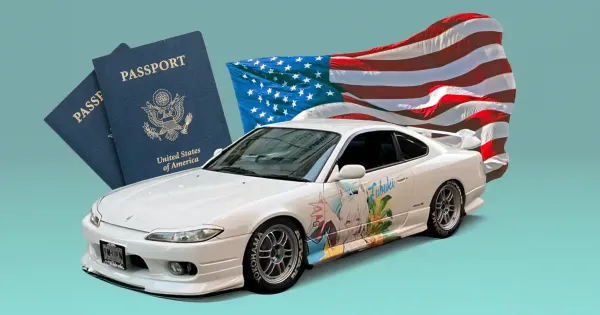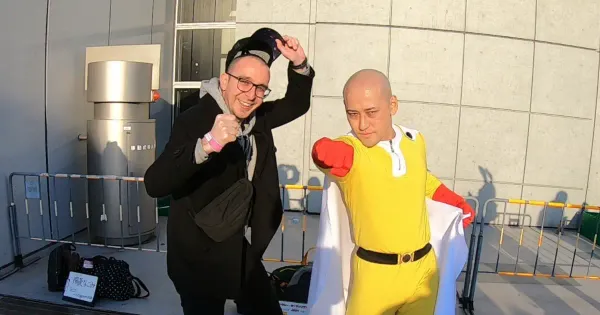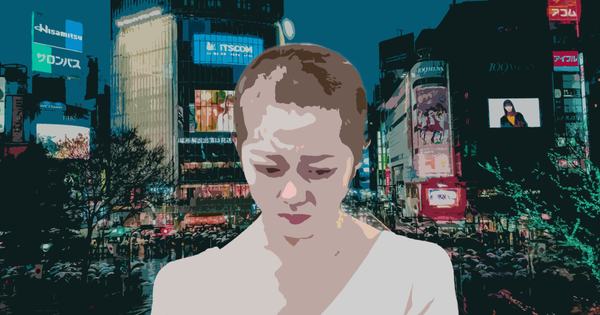Should You Worry About Going to Prison in Japan?
There are a few particularly hard lines drawn in the sand - and crossing any of them is a proven shortcut into a Japanese jail cell.
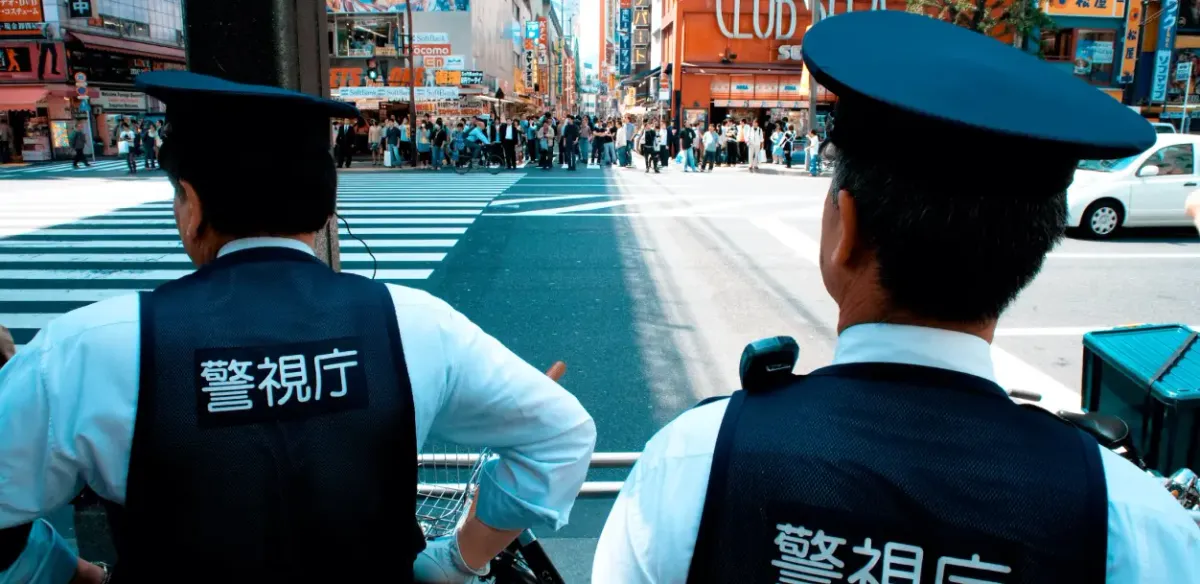
"You probably think this part is silly, but pretty much every year - it happens to one or two of you."
This was how our trainer introduced his powerpoint presentation on English teachers getting arrested in Japan.
I had been in the country for less than 48 hours, but was already well into my new job orientation at the head office in Tokyo. It was a kind of bootcamp, designed to turn our group of freshly arrived misfits into proper English teachers, ready to be turned loose on Japanese public schools.
Even with our ill-fitting suits and desperate need for better haircuts, a successful stay in Japan was all but guaranteed for those of us who could pass the week-long crash course. That is - as long as we managed to avoid prison.
My home country holds nearly a quarter of the world's prisoners.
The United States incarcerates its own citizens at a rate that rivals Joseph Stalin during the height of the Soviet gulags. Roughly one third of Americans will have a brush with the legal system at some point in their lives. The US has become infamous for its prison privatization, racially disproportionate arrests, and mandatory minimum sentences.
While managing to avoid the big house so far, I've spent much of my life both keenly aware of its existence - and genuinely afraid of the possibility of going there. Now for the first time, I was contemplating what life might be like inside of a Japanese prison.
But why would an English teacher go to prison in Japan?
I watched curiously as the trainer advanced his powerpoint presentation. He was right - I did think this part was silly.
However, after three years in Japan, I now realize that his second statement was true as well. A handful of English teachers really do go to jail in Japan - along with plenty of other foreign residents and tourists as well.
Perhaps unsurprisingly, booze played a role in almost every situation.
Japan has a fascinating relationship with alcohol. For a society that emphatically scorns social taboos like talking on the train, they seem to be surprisingly forgiving of public intoxication. Images of drunken salarymen have made their way into the hearts and social media feeds of countless fans of Japan around the world. The same society that turns its nose up at eating while walking - somehow gives a pass to the act of urinating on Kyohei from HR because he fell asleep in the karaoke box.

The simplest explanation is that Japan is just a work hard, play hard country. The truth is of course much more complex and nuanced. There are societal pressures that push people to drink, even if they don't want to at all. Declining to join the rest of the office for a night out can be a career-damaging mistake. Turning down a drink from the boss - might just be the rudest thing you could do. Given the fact that Japan literally had to invent a new word to describe "death from overwork", it makes sense that getting drunk might be the only break some people get from their otherwise extremely stressful lives.
This however, does not mean that Tokyo descends into its own version of "The Purge" every Friday night (though at times it may feel like that). There are a few particularly hard lines drawn in the sand - and crossing any of them is a proven shortcut into a Japanese jail cell.
Here are 5 of the more common cases.
1. 飲酒運転 Driving While Intoxicated
If you're from the US, you may be familiar with the concept of being "over the limit, under arrest." I remember being taught the following formula in my high school driver's education class.
1 Standard Drink => BAC + .02
1 Hour of Metabolism => BAC - .02
Many of us went on to believe this was an effective way to keep a running count of blood alcohol percentages, in the way a person might try cheating at Blackjack. Basically, the idea is to strategically consume and metabolize alcohol in a way that keeps you below .08. To a somewhat more mature adult, this is foolish. To a Japanese person, this is insanity.
That's because the driving limit in Japan is virtually zero.
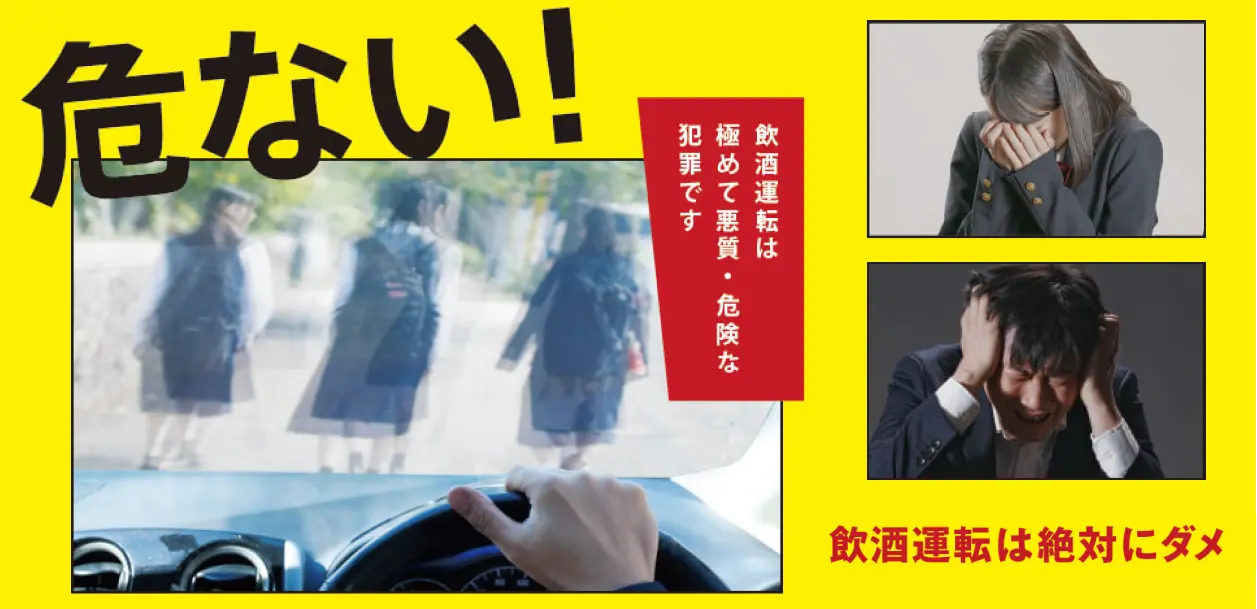
Technically it's .03, but since this level of intoxication is barely noticeable, and can be achieved with only a single drink - it's hardly a risk worth taking.
Japan also punishes the passengers in drunk driving cases - sometimes to the same extent as the driver. This is because Japan feels passengers ought to know better. If your friend is driving drunk, why did you let them? If they're not your friend, why did you get in the car with a drunk stranger?
First offenders can face up to three years (with labor), but if you injure or kill anyone while driving under the influence, you're looking at 15 or 20 years in Japanese prison.
2. 暴行罪 Assault
The bars and clubs of Japan are not all that different from the rest of the world. That is, if you're measuring the number of tough guys who've had one too many. And while getting into a bar brawl is dangerous in any country, you especially don't want to be trying to tell your side of the story from a Japanese police box.
If your opponent is a Japanese citizen, they will have a significant home-field advantage over you. What seemed like a harmless shoving match can very quickly turn into a formal charges filed against you. Plenty of foreigners have made the critical error of thinking that a little last train scuffle will end without any real consequences.
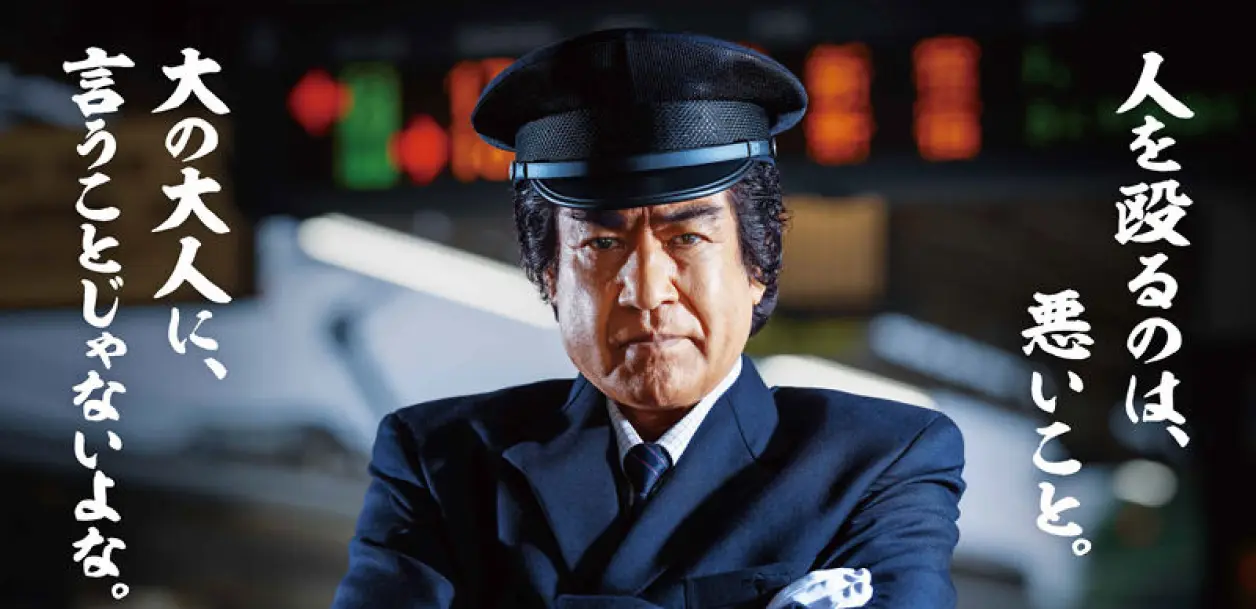
Just putting your hands on someone could land you up to two years (with labor), but this type of assault only applies when it does not result in any bodily injury to your victim. Hurt someone and you'll face up to 15 years of hard time.
There is at least one case of an American shoving a Japanese bar patron who landed on his head, fell into a coma, and died. For this tourist, the decision to flex on some random dude cost a person their life. After lengthy court proceedings and a large settlement payment, they managed to avoid the recommended 15 year sentence - but still served 3 years in a labor prison before being deported and permanently banned from reentering Japan.
3. 器物損壊罪 Property Damage
While Japan is widely regarded as one of the safest countries in the whole world, it is not without its problems. In Tokyo, one of those big problems is drink spiking.
In fact, drink spiking in Tokyo is so prevalent, that the US embassy has had to issue statements to its citizens in Japan, reminding them to be extra vigilant in places like Roppongi and Kabukicho.
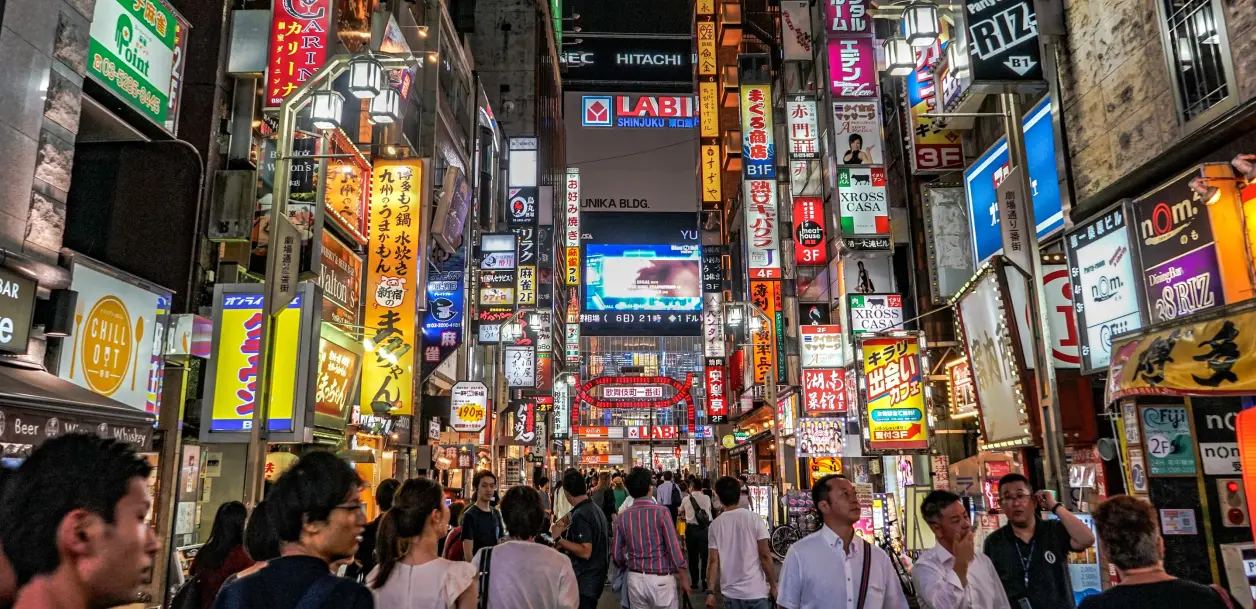
Unwitting tourists (or even expats) get swindled into entering sketchy clubs and downing drinks laced with drugs - some combination of a sedative and stimulant. One to pacify you and cloud your memory, and one to keep you alert enough to follow simple commands - like going to an ATM and making a massive withdrawal.
When a foreign college student woke up in a bar with no memory of how he'd gotten there, he found himself being accused of breaking a lamp. A case of property damage for which he would need to make swift restitution - about $1000.
Having done his research on Tokyo drink spiking scams, he was convinced that the broken lamp situation was simply a shakedown for his cash - and the police on the scene were Yakuza members posing as officers.
Unfortunately, the lamp was real, and so were the cops. His resisting arrest, and attempting to flee, earned him the better part of a year in solitary confinement.
4. 麻薬 Drug Related Offenses
Weed is legal in 21 US states at the time of this article.
In Japan, simple possession can get you up to five years in prison.
Ironic, considering that the United States is responsible for the creation of cannabis laws in Japan. While under US occupation in 1948, Japan passed The Cannabis Control Law or 大麻取締法 (Taima torishimari hō) just in time for America to beef up their cotton and synthetic fiber exports.
By passing the Cannabis Control Law in Japan, the US had succeeded in eliminating the competition from Japan's hemp textile industry - though just a few years prior, Japanese farmers were growing hemp to make ropes for the Imperial Navy.
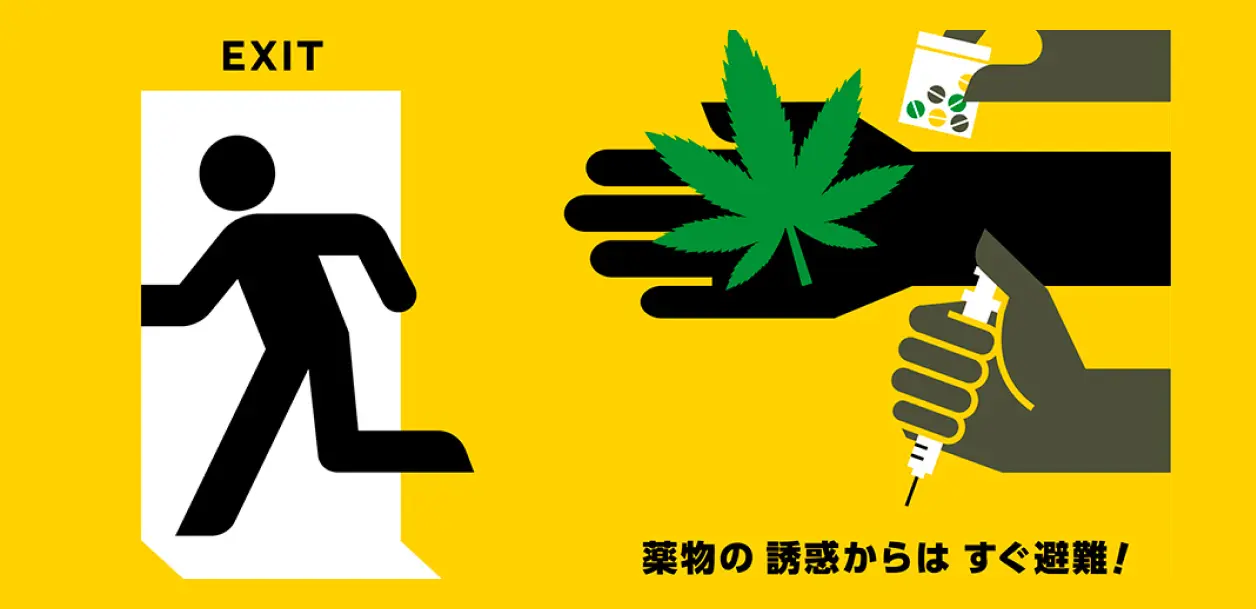
In other words, a conspiracy by the military industrial complex is what caused a pop idol to perform the "dogeza" in order to apologize for having like 2 grams in his apartment.
So in a country where even celebrities get the book thrown at them, you shouldn't expect any leniency as a foreigner who gets busted.
5. 性犯罪 The Really Bad Stuff
There are of course, some outliers in the statistics. It isn't just bar fights and bong rips filling Japanese prisons with western college kids. Some people come here and commit seriously heinous crimes.
In American prisons, there is a concept of having bad paperwork. This refers to being charged with crimes that are seen as unacceptable in the eyes of the already housed convicts. Those who commit sexual crimes against children, are quickly marked for severe beatings, or even murder. This is done under the orders of prison gangs, or simply by a lone inmate following their own moral compass.
Jason Allison, dubbed "The Lolicon Yankee" would fall into the category of having bad paperwork. This 44 year old American preyed on schoolgirls while working in Tokyo as an assistant English teacher.
Unfortunately, Allison was not sentenced to prison in the United States. He was given another job, at another school, where he molested another child. His 2017 arrest made headlines, but his punishment and his current whereabouts remain unknown.
The probability of a prison sentence
For those of us with clean paperwork, the risk of getting locked up in Japan is likely no greater than in our home countries. Understanding just how strict Japanese laws relating to drugs and alcohol are - is one great way to avoid going to prison in Japan.
Japan has a complex criminal justice system that is not to be trifled with. As guests in someone else's home, we should be particularly cautious and mindful of our actions. However, we need not live in fear. You'll have a great time in Japan, so long as you follow these simple rules:
Be respectful of others, know your limits, and leave your weed at home.
